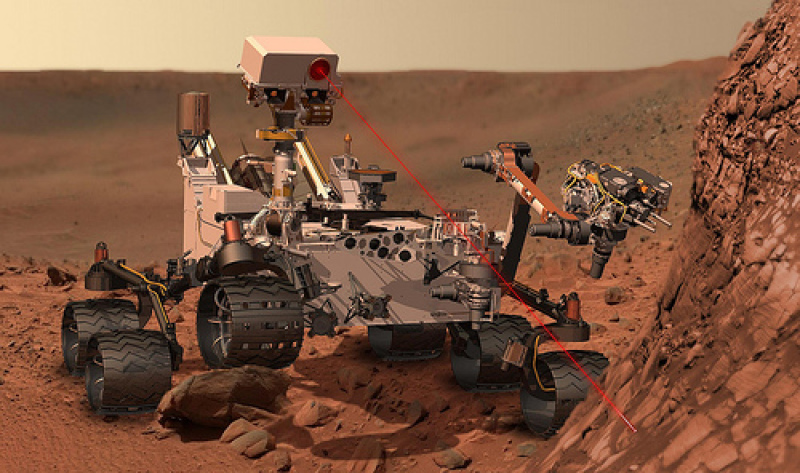
NASA scientists reported on Monday that planet Mars used to have shallow lakes that were capable of supporting living organisms, according to USA Today.
The discovery was made by the Curiosity rover, which was deployed to the Red Planet by the space agency in 2012.
Scientists revealed that the rover came across a dried river bed that previously supplied water to the lakes found on Gale Crater, a huge depression on Mars' surface that was formed after a huge space rock crashed on the planet.
Based on the data collected by Curiosity on the rocks on the river bed and in the dried lakes, the scientists speculated that the bodies of water may have existed for millions of years. This is enough time to allow living organism to thrive in the lakes.
In addition, Curiosity's latest discovery was able to shed light on the mysteriousness of Mount Sharp, a huge rock formation located in the middle of Gale Crater. Scientists believe the mountain was formed by the rock sediments that accumulated at the bottom of the lake, Inquisitr reported.
"This lake was large enough it could have lasted millions of years - sufficient time for life to get started and thrive, sufficient time for lake sediments to build up and form Mount Sharp," Michael Meyer, NASA's lead scientist for the Mars Exploration Program said during a briefing.
"We are making headway in solving the mystery of Mount Sharp," added John Gotzinger, a project scientist for Curiosity. "Where there's now a mountain, there may have once been a series of lakes."
The discovery led scientists to believe that before Mars became a dry and desert-like planet, it had bodies of water and sported a humid environment, according to Computer World.
"Today's Mars is dry and probably had been that way for two billion years, but at one time Mars was shaped by water," Curiosity deputy scientists Ashwin Vasanda said. "Rivers, lakes and ground water were present for millions of years.
"The atmosphere must have been thicker," Vasanda added. "Mars must have been warmer...and the climate system must have been loaded with water."
Given these planetary features and conditions, NASA scientists believe Mars was once a hospitable environment for living organisms.


















